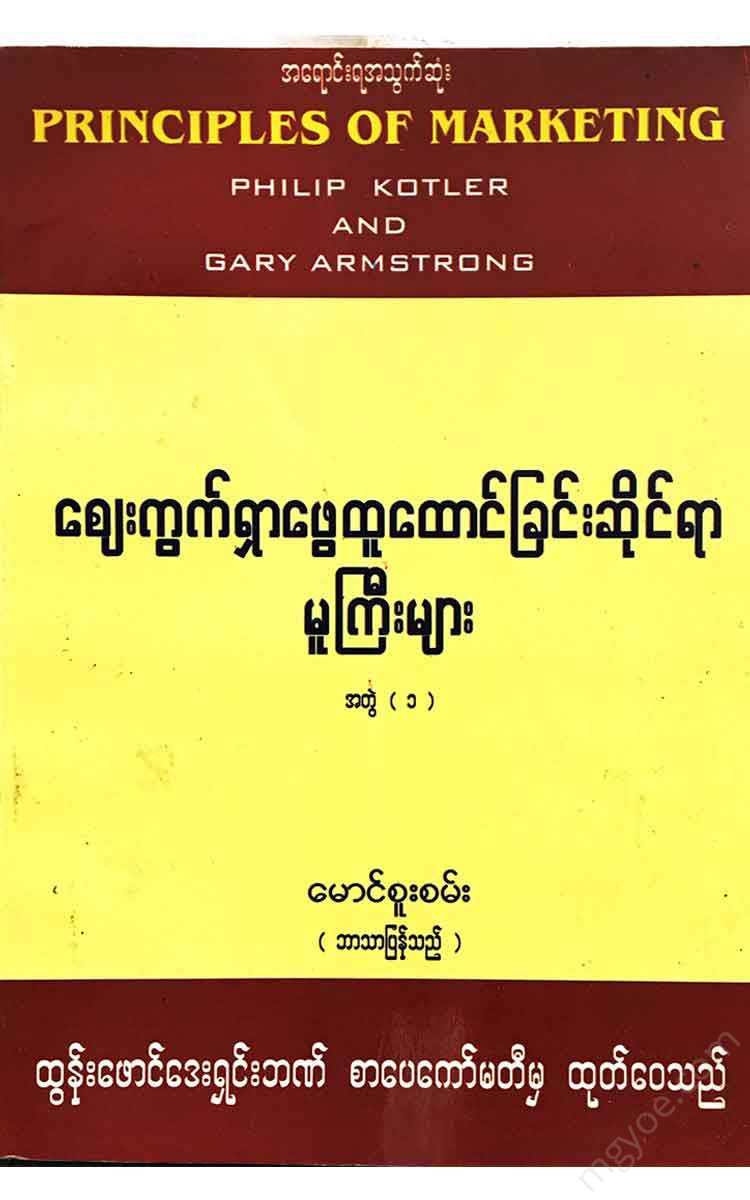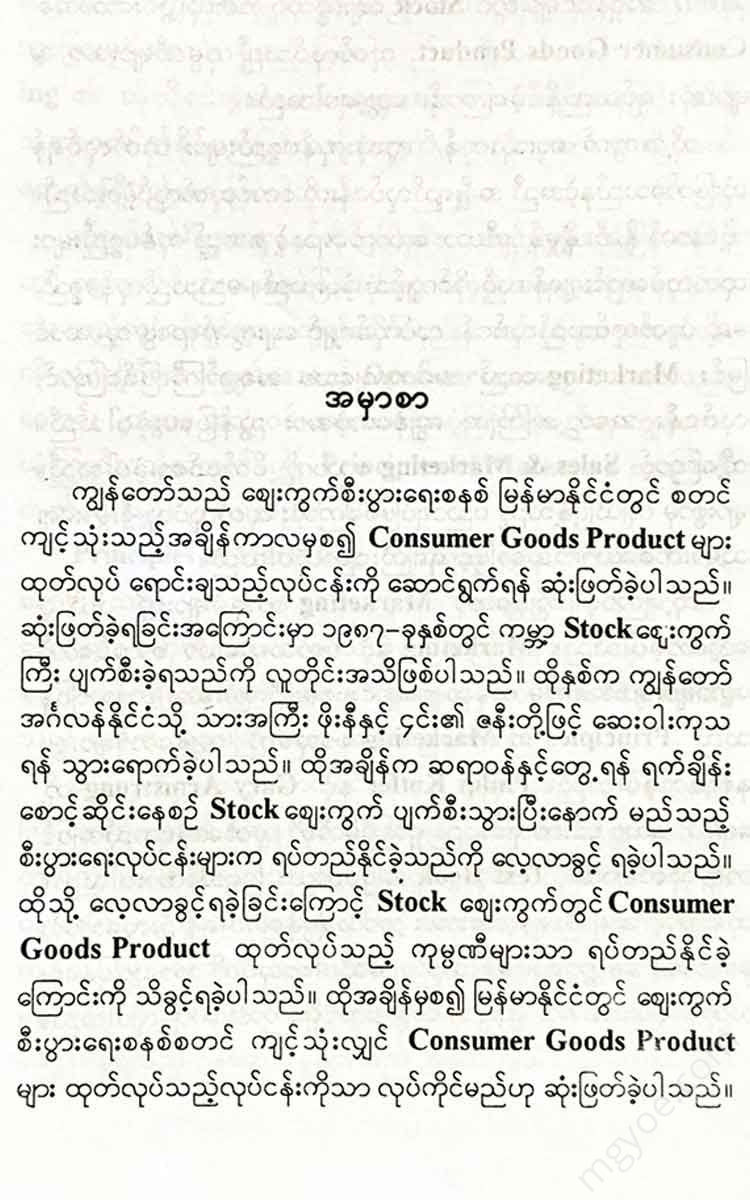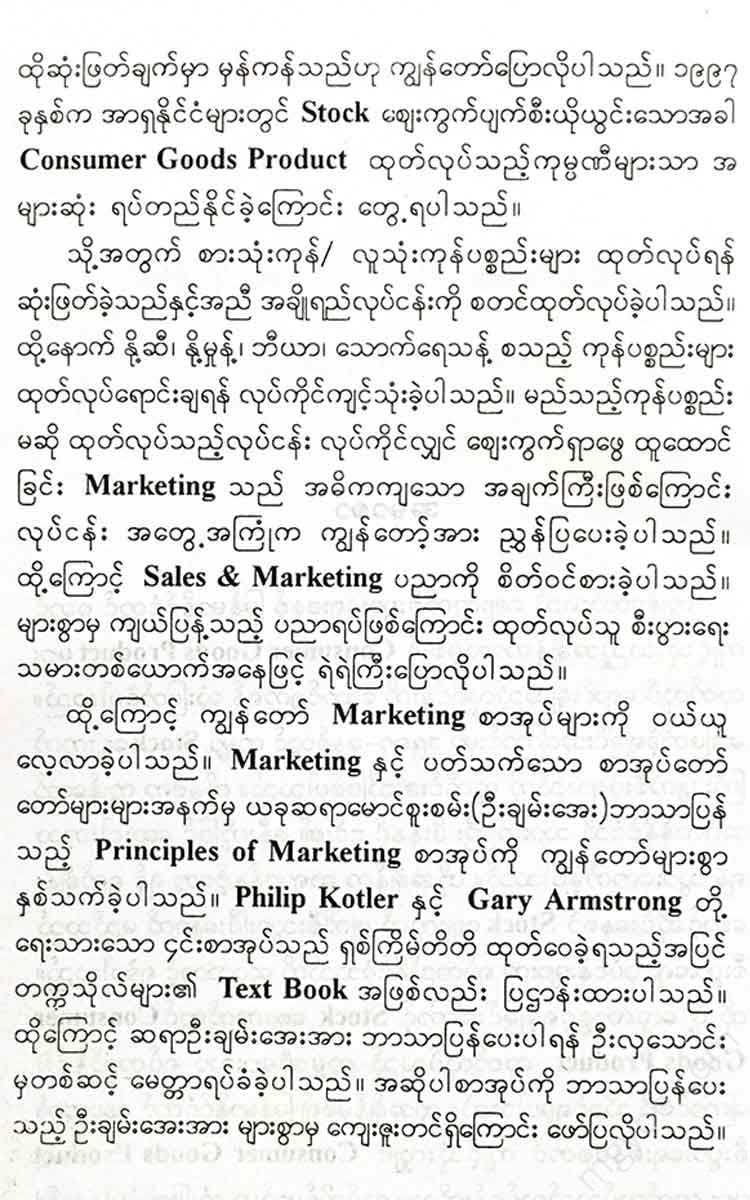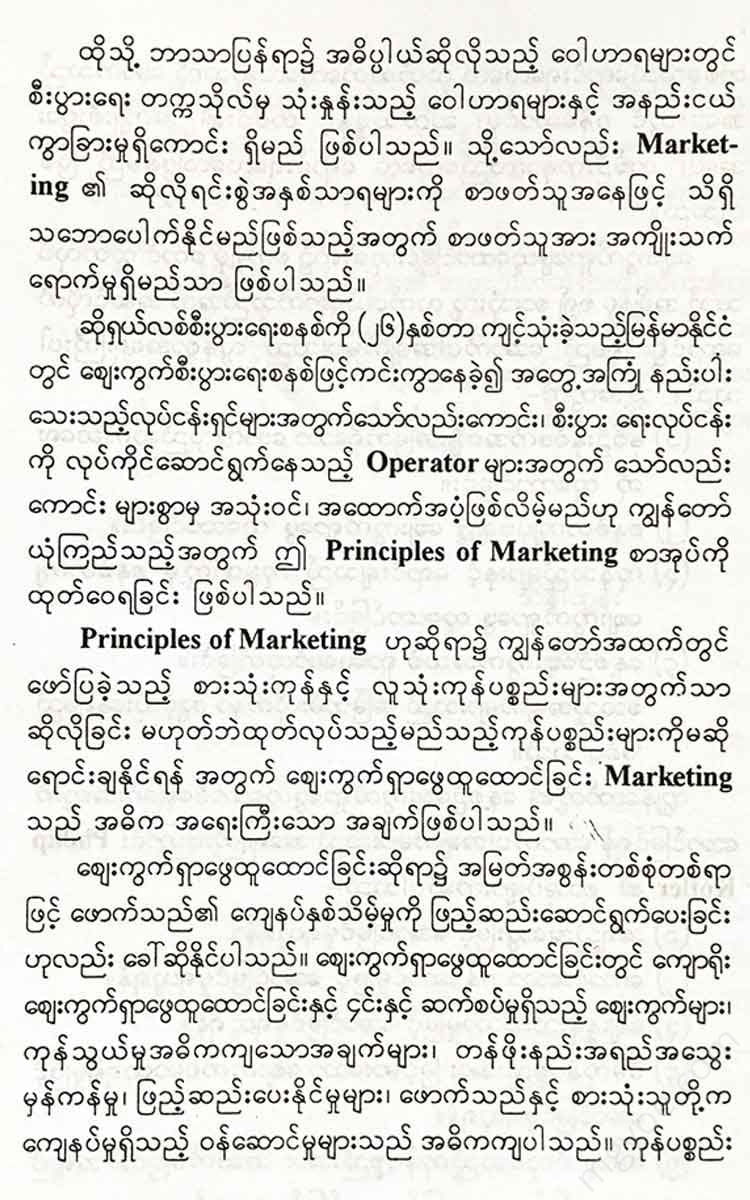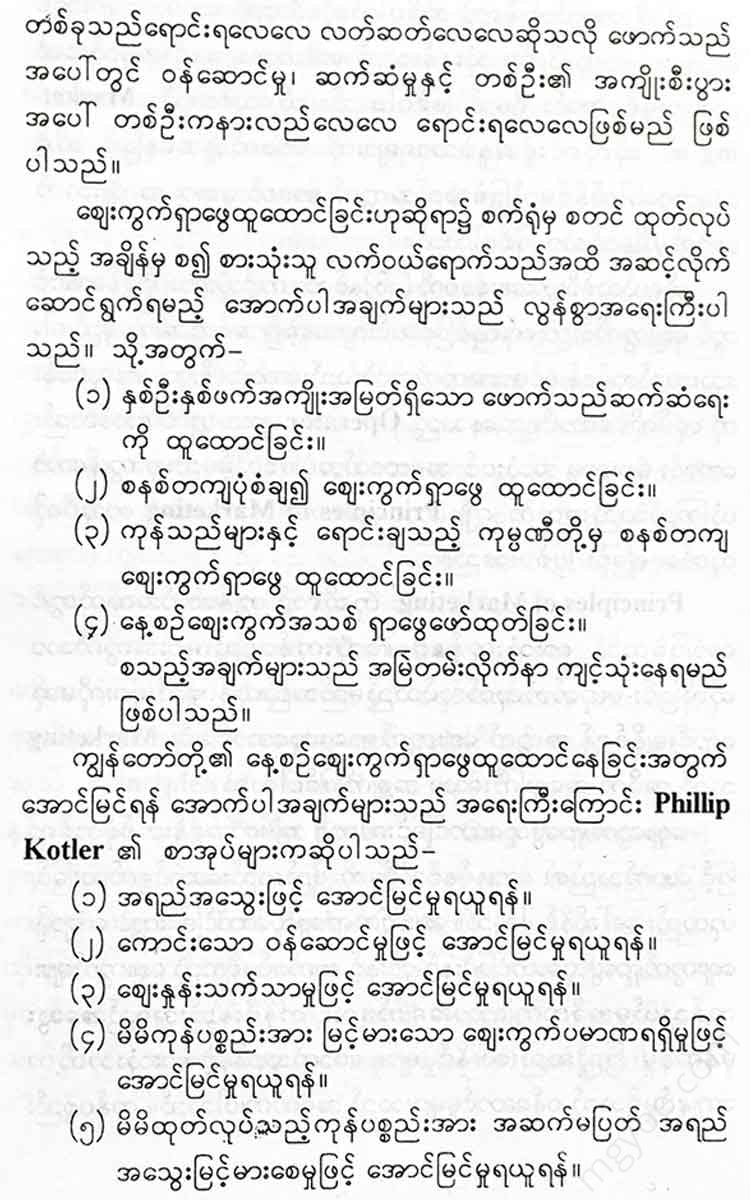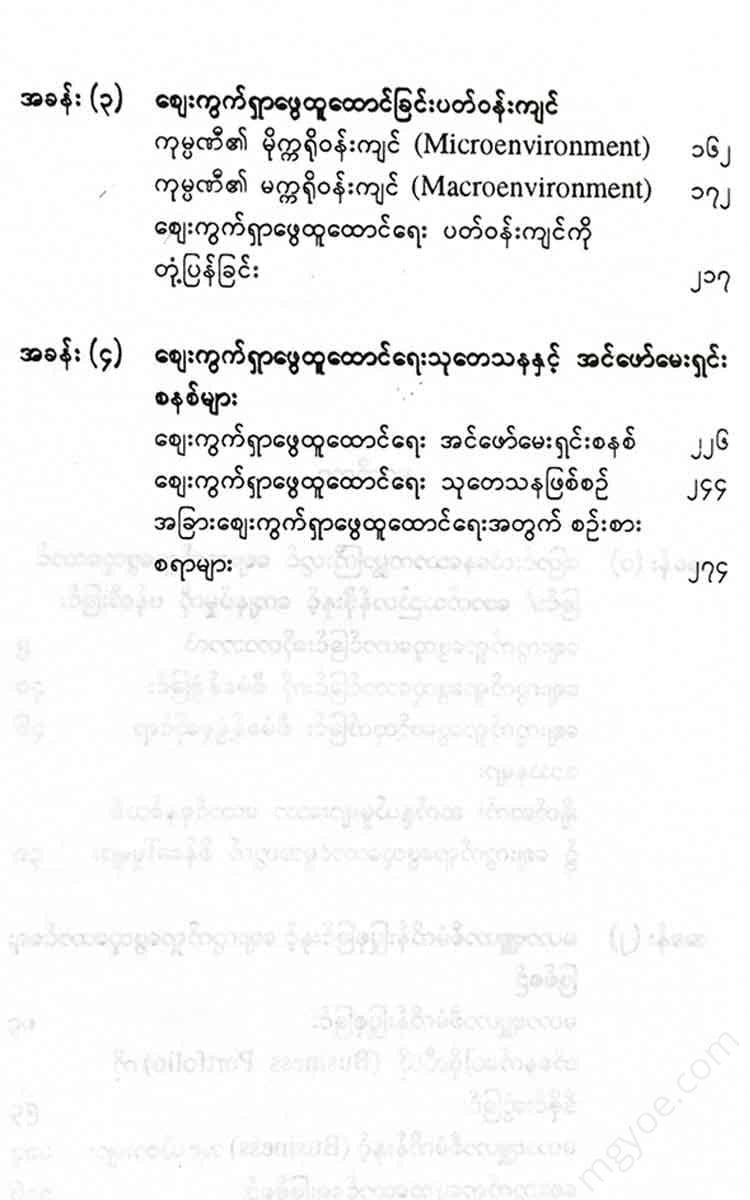Other Websites
Maung Kispa - The Basics of Marketing (Volume 1)
Maung Kispa - The Basics of Marketing (Volume 1)
Couldn't load pickup availability
“Swoosh” means “everywhere.” This word refers to the Greek goddess of victory in ancient mythology. If you look at a sports magazine, a basketball game, a television show, or a golf game, you will see NIKE. And with it, you will see the Swoosh. It is the Nike brand.
The strength of the Knight brand and its logo speak volumes about Knight's marketing expertise. Knight's strategy is centered around famous athletes, striving to improve the quality of its products. The slogan "Just do it" in the advertising campaign is constantly changing the face of sports marketing.
Knight spends millions of dollars each year on big name endorsements, flashy promotions, and high-profile advertising. Over the years, Knight has been associated with some of the biggest names in the sport. No matter what sport you play, your favorite athlete is likely wearing a Knight-branded jersey.
But Knight knew that good marketing was more than just big sales pitches and promises. It was about delivering real value to customers. Knight's initial success came from his ability to produce technically superior running shoes and basketball shoes, which were a great fit for serious athletes who were frustrated by the lack of innovation in sports equipment. To this day, Knight continues to lead the way in product development and innovation.
Nike offers its customers more than just a good supply of sports gear. As its website (www. nike. com) emphatically states, “Knight always knows the truth, and the truth of where the shoes take you is more important than the truth of the shoes.”
Beyond shoes, accessories, and gear, Knight also markets a way of life, a culture of sports, and a “do it” attitude. “Fundamentally, our culture and our style is to be a rebel,” says Phil Knight, Knight’s founder and CEO. The company is truly passionate about sports. It breaks away from tradition. It works hard. It’s involved in serious sports. Ask anyone about Knight. They’ll tell you, “Knight is about athletes. Athletes are about sports. Knight is about sports.”
Knight cares about the lives of its customers as much as it does about their bodies. It doesn’t just do sales promotion. It also promotes sports for the benefit of all. For example, the recent “Knight-Do It” advertising series strongly supports women’s sports activities. Knight also provides many benefits to girls and women who participate in sports. Knight also invests in less obvious sports, even if they don’t make a lot of money. Through these efforts, Knight has established itself as a company that not only produces good sports products, but also cares about everyone.
Taking care of customers also brings in a lot of revenue for Knight. In the decade ending in 1997, Knight’s revenue grew at an incredible 21 percent per year. Its annual payout to investors averaged 47 percent. Knight “flat shoes” dominate the global athletic footwear market. With a 47 percent share of the U.S. market, it has more than double the share of its closest competitor, Reebok. With a 27 percent share of the global market, Knight has aggressively expanded into new product categories, sports, and regions around the world. Within a few years, Knight’s sportswear business accounted for a quarter of Knight’s $9.5 billion in annual sales. Knight also has its Swoosh logo printed on everything from sunglasses to footballs, batting gloves, and hockey sticks. It has introduced a dozen new sports, including baseball, golf, He also ventured into ice and street hockey, skating, wall climbing and mountaineering, etc.
But in 1998, Knight was in financial trouble and sales were declining. The company was struggling for a variety of reasons. Mountaineering brands such as the "Brown Shoe Crazy" and outdoor sportswear brands such as Timberland were entering the athletic footwear industry. As competition increased, the resurgent Adidas began to gain sales in the United States. As Knight's sales declined, so did his sales. To make matters worse, college students from various universities protested against Knight, accusing him of exploiting child laborers in Asia and making sports too commercial.
But Knight’s biggest obstacle is not his own. It’s his own incredible success. The Swoosh has been cast over America more quickly than it needs to be. The brand is suffering from backlash from the big brands. The swoosh is so ubiquitous that it’s almost unbearable. According to one analyst, when Tiger Woods shows up in Knight gear, he’s covered in logos. So full, he looks like he’s stuck in a knitting machine. “Oh, there’s a little backlash because there’s so many swooshes,” admits a Knight executive. And with sales reaching $9 billion, Knight has come from the sidelines to the mainstream. Today, tracing the origins of Knight is like tracing the origins of Microsoft.
To solve these problems, Knight went back to basics. These included innovation, new product lines, sub-branding (e.g., Michael Jordan's "jumping man" logo line), and de-emphasis on the Swoosh. For example, a recent ad focused more on the product's functionality, de-emphasized the swoosh, and ended with Knight's text logo. Knight also cut back on his expenses, which he had been spending heavily on advertising. These steps seemed to be working. Knight's profits and stock price rebounded.
Knight is making a bold move into new markets, especially overseas. Knight's U.S. sales account for 30 percent of its total. To dominate in the U.S. and around the world, Knight must dominate soccer. Isn't soccer the most popular sport in the world? Knight's share of the multi-billion dollar soccer market is only 3 percent. Soccer is now Knight's top priority. For example, Knight has set a deadline to become the number one supplier of soccer shoes, socks, apparel, and accessories for the 2002 World Cup.
In 2002, the struggle to reach the top was not going to be easy. Adidas had long dominated world football. Adidas had an 80 percent share of the global football equipment market, and Knight had only a few years to catch up with Adidas 50 years ago. Using the classic “look-in-your-face” marketing strategy, Knight was spending hundreds of millions of dollars to attack its rivals. Knight’s spending spree had shocked the world of football. Moreover, Knight’s vast resources and power had rapidly changed the economics of the sport. For example, Umbro bought the World Cup-winning Brazil team from Umbro for a record $200 million over ten years. Similarly, he bought the US national team for $130 million.
Competitors may expect Knight’s decline to continue. But few are really counting on it. Many are amazed by Knight’s marketing skills. One market analyst put it this way. Knight is still one of the great American brands, as well known as Coke and McDonald’s around the world. “No matter how hard we try, our voice will never be as loud as theirs. They are too strong,” said the vice president of Fila advertising. “Knight’s strategy may be over the top and aggressive, but there is no doubt that Knight’s top-notch marketing will succeed. Knight will dominate the world of football.”
Winning the world of football or any other business is about more than just writing big checks. To stay at the top, Knight must deliver the same quality, innovation, and value that has built a strong brand in America. It must earn respect country by country. It must also become part of the cultural fabric of each new market. It cannot afford to start out as a rebel against the status quo. A big Knight must rethink its relationship with customers. “When we become so powerful, there is a fine line between being a rebel and being a bad guy,” Knight says. “We have to be beautiful and big in the eyes of our customers.”
Today’s successful companies have one thing in common. Like Knight, they are committed to a customer-focused marketing strategy. They are focused on understanding and meeting the needs of customers in well-defined target markets. They are driven by a vision of creating superior value for customers and maximizing their satisfaction. As Bernie Marcus of Home Depot famously said, “We all understand what the Holy Grail is.” The Holy Grail is not a formula. It is a blind, blind commitment to customer service.”
